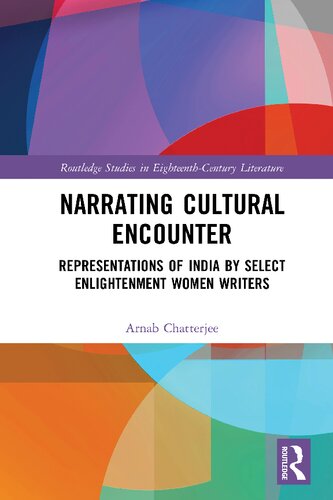

Most ebook files are in PDF format, so you can easily read them using various software such as Foxit Reader or directly on the Google Chrome browser.
Some ebook files are released by publishers in other formats such as .awz, .mobi, .epub, .fb2, etc. You may need to install specific software to read these formats on mobile/PC, such as Calibre.
Please read the tutorial at this link: https://ebookbell.com/faq
We offer FREE conversion to the popular formats you request; however, this may take some time. Therefore, right after payment, please email us, and we will try to provide the service as quickly as possible.
For some exceptional file formats or broken links (if any), please refrain from opening any disputes. Instead, email us first, and we will try to assist within a maximum of 6 hours.
EbookBell Team

4.1
40 reviewsThis book interrogates and historicises eighteenth-century British women writers’ responses to India through the novel and travel writing to bring out the polyvalent space arising out of their complex negotiation with the colonial discourse.
Though British women enjoyed their privileged racial status as the utilisers of colonial riches, they articulated their voice of dissent when they faced the politics of subordination in their own society and identified them with the marginalised status of the colonised Indians. This brings out the complicity and critique of the colonial discourse of British women writers and foregrounds their ambivalent responses to the colonial project.
This book provides detailed textual analysis of the works of Phebe Gibbes, Elizabeth Hamilton, Lady Morgan, Jemima Kindersley and Eliza Fay through critical insights from the idea of the Enlightenment, postcolonial theory and feminist thought. It also foregrounds new perspectives to colonial discourse vis-à-vis the representation of India by locating the dialogic strain within the British narratives about India.